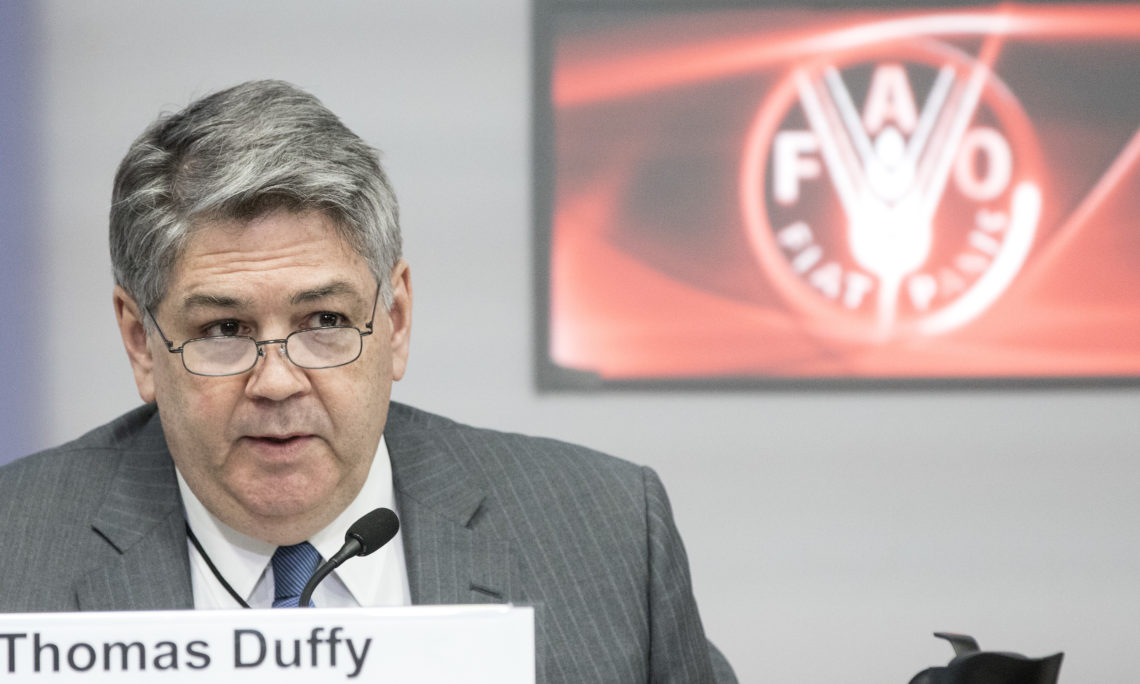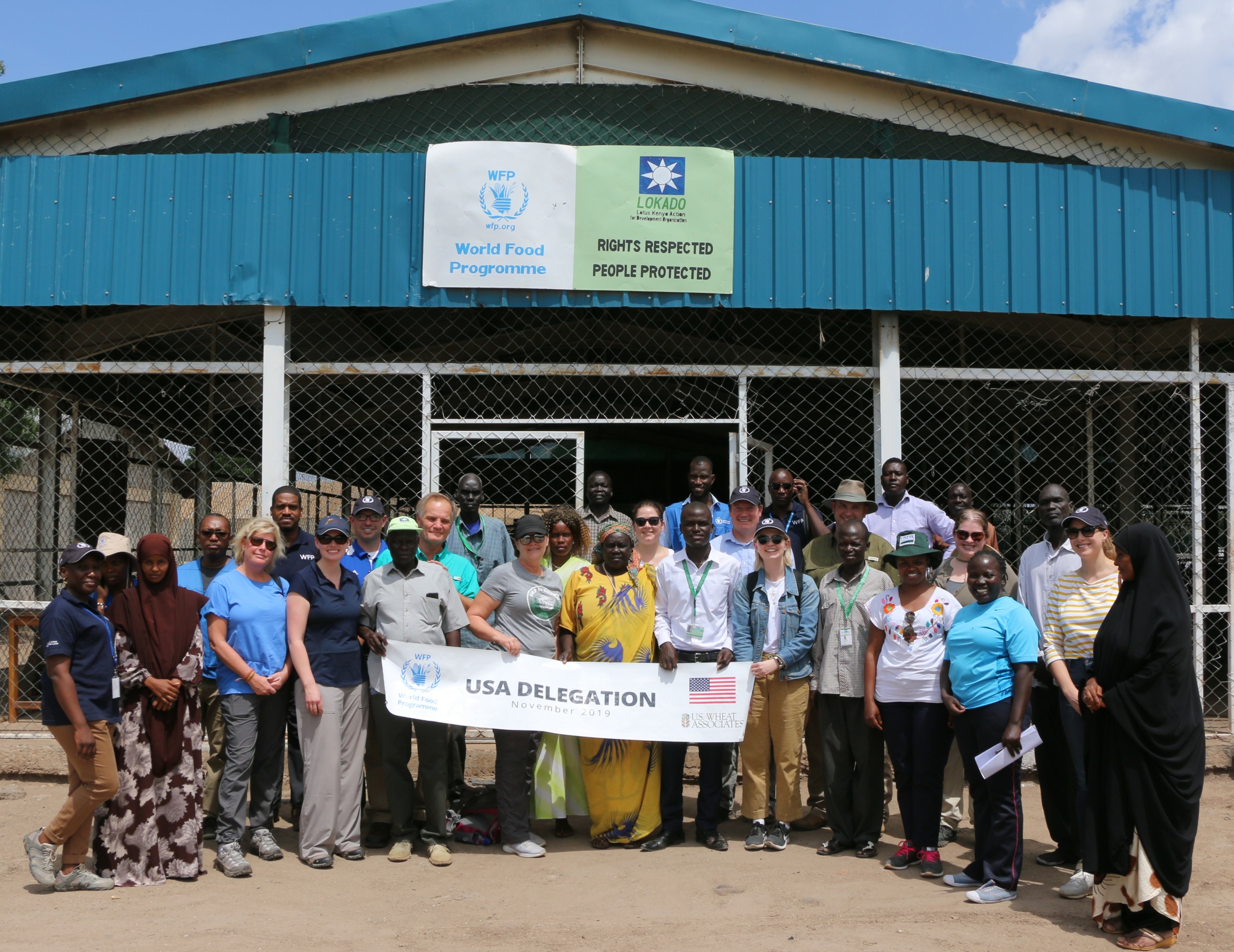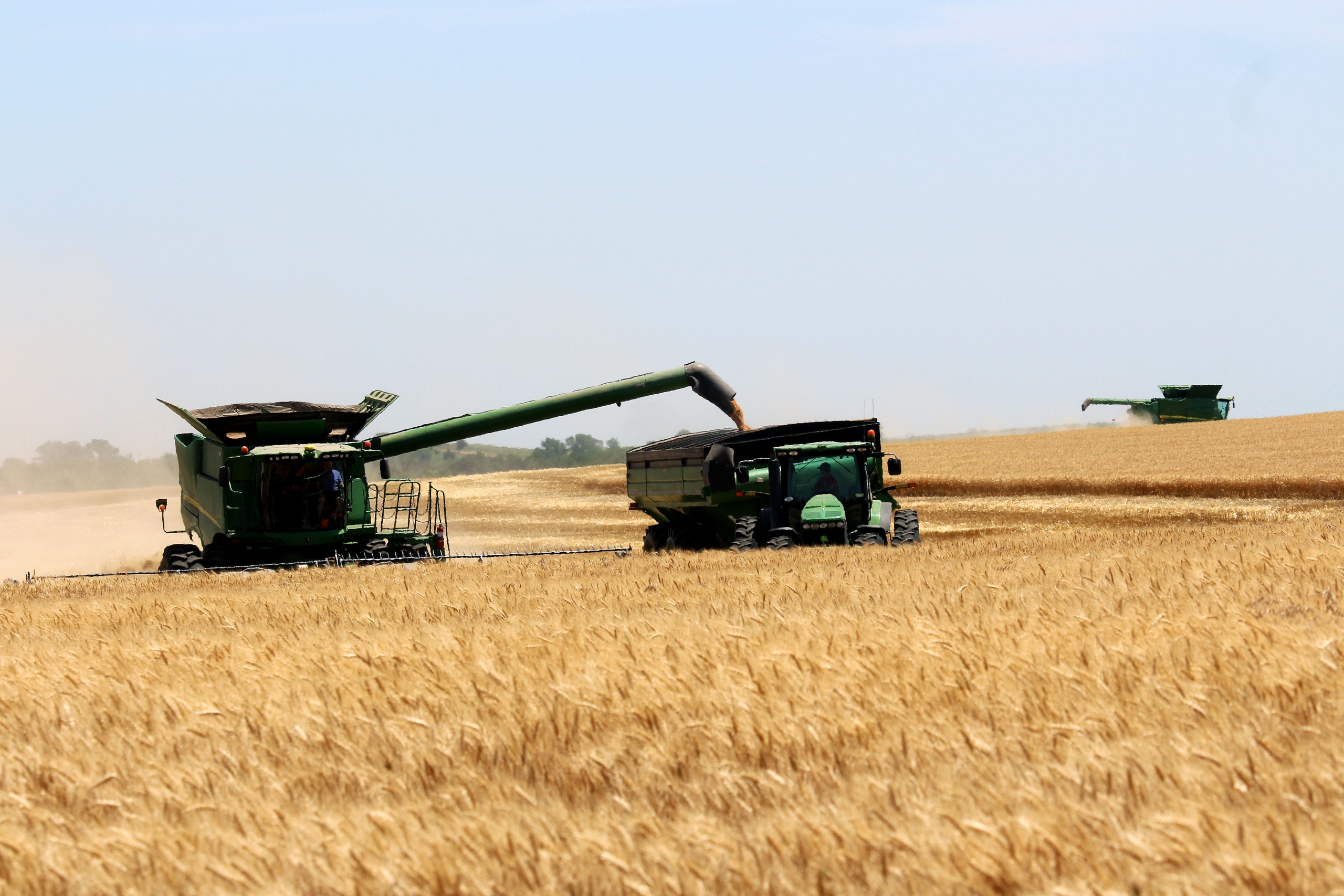Global Food Security Depends on Building and Protecting Entire Food Ecosystem
On Feb. 24, 2021, Thomas Duffy, the Director of the Office of Agricultural Policy at the U.S. Department of State, joined the U.S. Wheat Associates (USW) and National Association of Wheat Growers (NAWG) Joint Wheat Breeding Innovation Committee meeting to discuss global agriculture. The Office of Agricultural Policy promotes global food security, ensures a level playing field in agricultural trade, and advocates for agricultural biotechnology.

Thomas Duffy, then Chargé d’Affaires, U.S. Mission to the UN Agencies in Rome, giving remarks at the Launch of the 2018 Global Report on Food Crises. Credit: ©FAO/Alessandra Benedetti Copyright: FAO.
We Need Science-Based Policies
“With climate change at the center of the U.S. foreign policy, we believe that innovations that support resource-efficient and climate-smart agriculture can promote resilience and sustainable food production globally,” Duffy said. Some of the areas which hold the greatest promise, according to Duffy, include biotechnology twinned with “Big Data” and advances in artificial intelligence. As users of these innovations, farmers play an essential role in adopting and embracing new technologies to sequester carbon to mitigate climate change further and protect their investments.
Still, global access to and acceptance of agricultural biotechnology is a long way from reality. On a positive note, drought-tolerant and herbicide-tolerant GE (genetically engineered) wheat has been approved for the first time in Argentina. This advancement could have huge implications for global wheat markets if successful. USW and NAWG positions on biotechnology are available online.
Duffy stressed the need for global engagement, saying, “It’s important for us to leverage international forums and agreements to continue to advance science-based policies globally.”
We All Have a Role
International organizations play a critical role in setting worldwide standards and policies that underpin global trade in food and agriculture and responding to global challenges, such as feeding a growing population. As the Biden Administration has made clear, “The United States is committed to the international organizations that shape our world.”

U.S. wheat, sorghum and rice growers observed East African food aid programs in 2019.
Duffy said, “We are all proud of the work done by the World Food Programme – headed by David Beasley who, while an international civil servant, is an American citizen. WFP was the recipient of the 2020 Nobel Peace Prize and I am proud to note our steadily increasing support for WFP over the last several years. We believe American leadership in and support for international organizations is crucial, and we will continue to maintain or re-establish leadership roles in order to champion advancements in food and agriculture and represent U.S. farmers, ranchers, innovators, and workers.”
“In communities that rely largely on agriculture for their food and income, gender inequality translates into a large gender gap in agricultural productivity, for which countries pay a high price,” Duffy continued. Previous macro-level studies by UN Women have calculated potential gross gains of $100 USD million in Malawi, $105 million in Tanzania, and $67 million in Uganda per year from closing the agricultural productivity gap between men and women.
Given the challenges facing global food security and agriculture, it is more important than ever that the agriculture sector performs to its full capacity, which includes enabling women as leaders at all levels in the industry, leading to more efficient, inclusive and sustainable results.
Safeguarding the Entire System
Finally, global access to food must be protected in the face of pandemic trade restrictions, increasing levels of poverty, international conflict, and the impacts of climate change. The United Nations SOFI report warns that the global rate of hunger has continued to rise despite the goal of zero hunger by 2030, and COVID-19 may increase the number of food insecure by up to 130 million people.
The United States government, Duffy stated, is working to ensure the upcoming 2021 UN Food Systems Summit addresses global food security challenges through science-based solutions for sustainability in food production methods, supply chains, and regulatory policies.
Duffy concluded by saying, “To achieve true and lasting food security, we need to build and safeguard the entire food ecosystem – the land and water, the local economies, the supply chain, the farmers, and the communities that depend on one another to thrive.”


